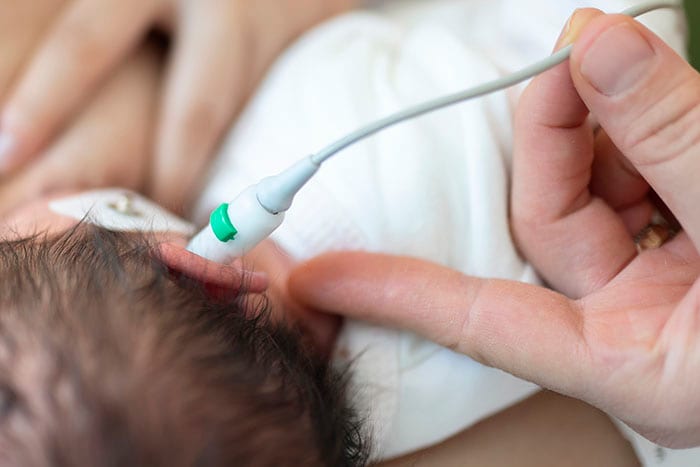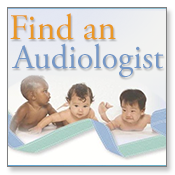Newborn Hearing Screening Can Improve Reading Skills

Findings from a study funded by CDC’s Early Hearing Detection and Intervention (EHDI) program were recently published in the journal Pediatrics. The article, entitled “Reading proficiency trends following newborn hearing screening implementation,” describes trends in reading proficiency among school-aged children in Colorado who are deaf or hard of hearing.
Reading Proficiency of Children with Hearing Loss
This study looked at reading proficiency results from the Colorado Student Assessment Program among 321 children who are deaf or hard of hearing, assessed in grades 3 through 10. The test years (2000–2014) included children born before and after implementation of Universal Newborn Hearing Screening (UNHS) and Early Hearing Detection and Intervention (EHDI) in an urban Colorado school district.
Findings showed that reading proficiency significantly improved for each group of children (by birth year and grade overall) following implementation of UNHS/EHDI. This study is the first to demonstrate long-term improvement in reading proficiency over time among children with hearing loss, as UNHS/EHDI programs were being implemented. By the end of the study, more than 80% of children in Colorado met the national EHDI 1-3-6 benchmarks.
However, researchers identified a sociodemographic disparity, with greater improvements in reading proficiency among children in more economically advantaged families. This health equity issue could be due to differences in access to services.
CDC’s National Center on Birth Defects and Developmental Disabilities’ goal is to give every child with hearing loss the same opportunities to succeed as their hearing peers. This study shows that following the implementation of UNHS/EHDI, children with hearing loss experienced notable improvements in reading proficiency.
It is recommended that all babies are screened for hearing loss no later than 1 month of age.
If a baby does not pass the hearing screening, it is important that he or she gets a diagnostic hearing test and evaluation by a hearing specialist as soon as possible, but no later than 3 months of age.
Intervention services are recommended for children diagnosed with hearing loss, beginning as early as possible, but no later than 6 months of age.
Types of Interventions
There are different types of communication options and interventions available for children with hearing loss. With help from healthcare providers and intervention specialists, families can select the options that best meet their needs. These are some of the possible options:
- Learning other ways to communicate, such as sign language.
- Technology to help with communication, such as hearing aids and cochlear implants.
- Family support services, such as support groups.
What Can Be Done
Families, pediatric healthcare providers, and hearing specialists all play a role in getting a child’s hearing assessed in a timely manner and can help ensure prompt enrollment in intervention when necessary.
For more information about CDC’s resources, please visit
- Pediatrics article
- Facts about Hearing Loss
- Hearing Loss in Children Homepage
- Educational Materials
- Podcast in English [PODCAST – 10:46 minutes]or in Spanish [PODCAST – 13:11] on Early Hearing Detection and Intervention
